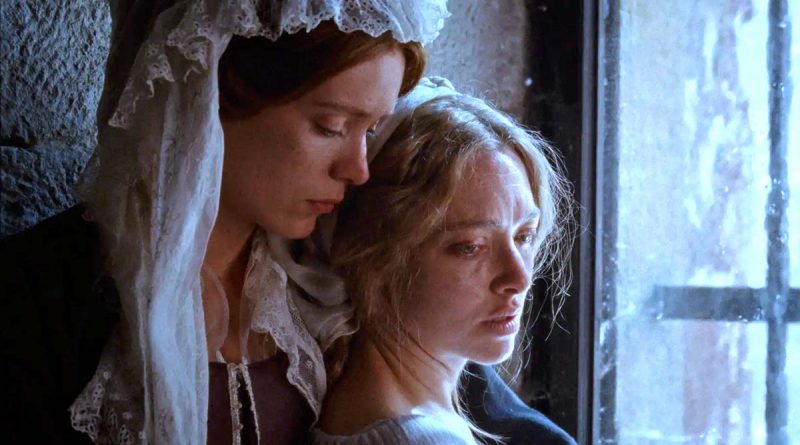The Testament of Ann Lee
Premiere at the Venice Film Festival
It’s said, by those who study such things, that even in an overall great screen performance, there will usually be one scene which wins the actor/actress their Oscar. Often the scene will include a powerful monologue or a display of raw emotion. But it will be the scene in which the skills of the thespian are fully showcased and pulls together neatly the brilliance of the rest of the performance.
But there are also performances that are liberally strewn with a series of moments of sustained brilliance to create an overall tour de force but without one standout scene which encapsulates it all.
Amanda Seyfried delivers such a revelatory performance in this bold, unique telling of the life of Ann Lee, the 18th century evangelical founder of the Shakers, a movement which later became known as the United Society of Believers in Christ’s Second Appearing. In one raw, fierce, frenzied scene after another she lays bare her soul as she communes with the divine and ecstatically shares her visions with her followers who dub her Mother Ann Lee, the female representation of God. They shake, tremble and chant with her in spectacular unison as she extols them to purge sin from their bodies and be purified.
Mother Ann Lee fervently espoused celibacy as a means to reach spiritual perfection and urged married couples to forego thoughts of physical union. She herself was married and bore four children, none of whom survived infancy. The tough births and subsequent personal trauma and anguish is unflinchingly portrayed and Seyfried conveys the sufffering as passionately as she does the preaching.
It’s a ferocious, no holds barred performance and she is wholly believable as a cult leader, not least, strangely, because she is so petite and wholesomely pretty. It’s the combination of the childlike countenance and wild eyed fanaticism and belief in her visions that makes her compelling . She is utterly bewitching and hypnotic in a role far removed from the sunny, smiling daughter in Mamma Mia.
She is ably supported by a stellar surrounding cast led by an impressive Lewis Pullman as her brother, William, who undertakes extensive missionary work for her when the group leave England to spread the word in the Americas where they founded a colony.
Seyfried and Pullman, both American, pull off impressive Mancunian accents and shine amidst the darkly lit first half of the gloom and grit of Manchester in the 1700’s before the lighter scenes of the vast open spaces of America. Amidst the brutality of the sexual and physical abuse Lee suffers, the imprisonment and the degradation, the loyalty and love between the siblings is a ray of brightness.
Taking the roles was a courageous acting choice by each and they are well served by the bravura, uncompromising filmmaking of director Mona Fastvold who co-wrote the screenplay with husband Brady Corbet. Fastvold doesn’t take the safe option at any point. The fact that, at the Venice screenings people walked out is a , ahem, testament to that.
Bravo Mona and Amanda. If there’s any justice, the vision of Oscars must come into being.
The Testament of Ann Lee won’t be for everyone. It’s a strange film with a weird, wild eyed lead character. Many will not know what to make of it. But it’s great that such a film can be financed and made in this risk averse film era of sequels, superhero franchises and safe biopics.
4/5


Press conference
The Testament of Ann Lee was a challenging elevator pitch to producers, said Brady Corbet in what must be the understatement of the festival! A drama about a baffling, radical religious preacher in the 18th century who led the faithful in bizarre shaking and grunting and claimed to be the female second coming of Christ?
It’s not exactly an easy sell .
Kudos then to Fastvold and Corbet for having an extraordinary vision and sticking with it, with enough conviction, to bring others on board to make it happen for a similar budget to their previous collaboration, The Brutalist.
For Fastvold it was about making a big, epic film about a female historical and religious figure. How many stories of such women do we see, she asked rhetorically, apart from Joan of Arc?
Much has been made about the film being a musical. Well, it does have songs and a form of dancing in it but this is no conventional musical. As Corbet explained, the singing is an integral part of the story. Where Mother Ann Lee and others need to express the depth of their faith or their experience of miracles, they do it through song or movement.
The singing is moving and doesn’t distract from the story. Daniel Blumberg’s music, adapted from Shaker hymns fits in perfectly. But it’s the weird but mesmerising choreography which, not unlike Vogueing, could become a talking point with which to sell this art house film to a wider public. One reviewer has suggested it could become a Tik Tok phenomenon and I’m not going to bet against that possibility!
Seyfried’s Mancunian accent was based on her watching YouTube videos of British actress Maxine Peake. Remarkably, considering the final result, she wondered at times, early in the production, whether Fastvold wouldn’t be better off casting a British actress. But Fastvold held firm. “And because she believed in me, I believed in me,” said Seyfried.
The Brutalist won Adrien Brody his second Oscar, last year. In the scope of her performance, Seyfried’s work as Ann Lee is reminiscent of Emma Stone in Poor Things. Stone won her second Oscar for it. Seyfried deserves her first for The Testament of Ann Lee.
I

